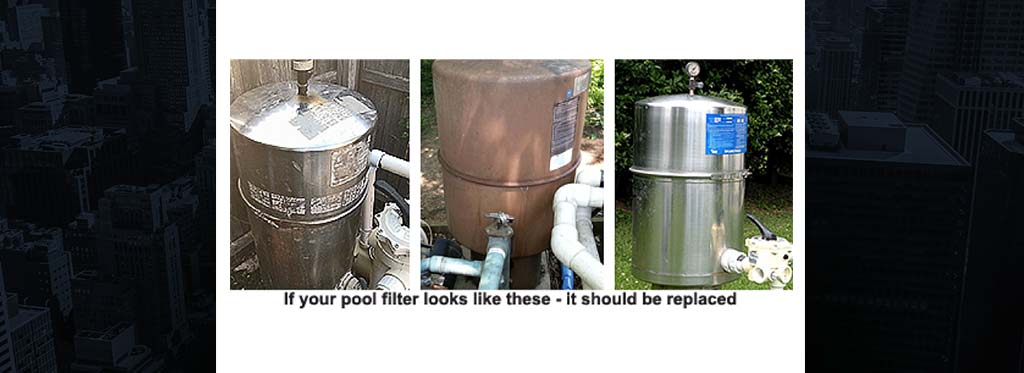
RLG RECOVERS $3.9 MILLION FROM CALIFORNIA HOSPITAL
February 10, 2016
Pool Filter Safety Attorney
August 3, 2018One needless lawsuit is often all it takes to completely wipe out the fund reserves of a small business. Not to mention the damage it can do to its reputation. While the reasons to start a business are plentiful, it’s not all smooth sailing. Thankfully, there are actions you can take that will go far to protect your business from harmful lawsuits.
Here are 5 tips that will keep
your business safe and prosperous.
Tip 1. Know the guidelines for employee overtime.
If your business hires employees, you need to know federal law requirements for hourly employees. Recent changes to federal law will be effective December 1, 2016. First you need to find out if the overtime law applies to your workers. Exemptions used to apply to salaried employees and to those who have administrative or executive positions—but this is no longer the case. Now, employees who earn less than $47,000 a year may qualify for employee overtime. If this law applies to your employees, institute a system to keep track of employees’ hours on the job.
Tip 2. Protect yourself from personal injury lawsuits.
Did you know that your business could be held responsible if one of your employees gets injured while on the job? Safeguard yourself against this occurrence by getting worker’s compensation insurance for your business. Read up on any common safety issues that are common to your business type. Make sure your employees are all trained in how to stay safe in your workplace. When all else fails, a firm that specializes in personal injury law, such as Rossman Personal Injury Law firm, can craft a strong defense for you. (We don’t do any worker’s compensation or personal injury defense work. We only do plaintiffs medical malpractice, plaintiffs serious personal injury and plaintiffs employment lawsuits. Plaintiffs are the individuals who are injured and filing suit, not the company or persons defending the case. This last sentence needs to be removed.)
Tip 3. Familiarize yourself with discrimination law.
If an employee feels he or she has been treated unfairly due to discrimination, this can often result in a lawsuit. According to federal law, you should not base your hiring or firing decisions in any way on any of the following:
- Religious affiliation
- Veteran status
- Pregnancy
- Citizenship
- Familial status
- Genetic information
- Gender
- Race
- National origin
- Age
- Disability
To protect yourself from a discrimination lawsuit, keep regular performance reviews. Decisions to fire or hire should be well-documented and should be based on measurable ability. A clearly outlined job description should help you determine a potential employee’s capability. And it can also help you measure if an employee’s work performance has fallen.
Tip 4. Know what constitutes harassment.
It’s not enough for you to mind your Ps and Qs. Your employees need to be in line as well so that you aren’t at risk of a hostile workplace environment lawsuit. (The problem with this sentence is that generally there is no such thing as a “hostile workplace environment lawsuit for bullying. The only lawsuit for a “hostile workplace environment” is when the “hostility” relates to any of the protected classes listed above. In other words, a hostile environment based upon one’s gender is actionable, but a hostile environment based upon the fact that one employee just doesn’t like the other is not actionable. As the linked article just relates to statistics relating to workplace bullying and is not intended to imply that such actions are the basis for a valid lawsuit, a better link would be here: https://www.eeoc.gov/harassment ) Harassment can be qualified as being bullied due to race, sex, appearance, or some other characteristic. It can take the form of verbal or physical intimidation. Isolation and ignoring a worker can also be qualified as harassment. Any behavior that causes another to sustain emotional damage may be ground for a harassment suit. Protect yourself by providing workshops to your employees that teach proper workplace conduct and pass out handbooks that outline acceptable and non-acceptable behaviors.
Tip 5. Establish guidelines and policies to minimize guesswork.
As an employer, one of the best ways to protect yourself from lawsuits is to have established policies that have been looked over by your lawyer. Policies should include a way for keeping track of employee overtime as well as how to handle infractions, evaluating a potential hire, evaluating a potential termination when necessary, Workplace safety and more. Having a checklist will enable you to make decisions based on evidence and will keep biases at bay. It will also safeguard you from potential liability.
You don’t need to write such guidelines from scratch. There are books and services that you can go to that will give you the legal framework from which to build your company policy.
Just know that whatever you invest in prevention will be money well spent when you consider all the possible lawsuits you are avoiding by doing so. Prevention is your best protection!





